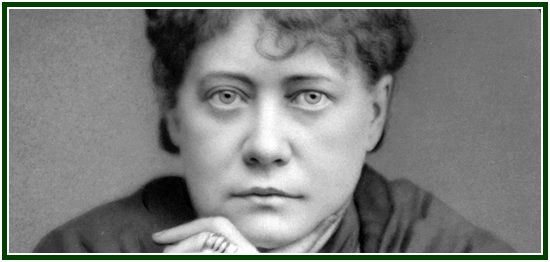
Universal Brotherhood Must Preserve
Diversity, for Each Nation Has Its Own Cycle
Carlos Cardoso Aveline

We live in multi-ethnical and cross-cultural nations, while many of us suffer from attachment to narrow-minded views of life. Most of present-day religions have tribal gods in the center of their conceptions of life.
H. P. Blavatsky (1831-1891) patiently demonstrated that monotheistic gods are in fact tribe deities created to serve a local ethos. Few religions transcend the idea of local gods, as Buddhism, Confucianism and Taoism do. The average sect and church gives unlimited cosmic power to gods invented by ill-advised priests.
There is therefore a sharp contrast between the technological advance obtained by our civilization and its cultural process. While technology has made us live in a planetary and universalist civilization from the material point of view, we are still slaves to old superstitions of the Middle Ages, from the religious and philosophical point of view.
The online Encyclopedia Wikipedia says on tribalism:
“[It] has a very adaptive effect in human evolution. Humans are social animals, and ill-equipped to live on their own. Tribalism and ethnocentrism help to keep individuals committed to the group, even when personal relations may fray. This keeps individuals from wandering off or joining other groups. It also leads to bullying when a tribal member is unwilling to conform to the politics of the collective.”
Esoteric philosophy offers its students a wide world-vision, and the energy (virya) needed to show the primitive forms of tribalism as unnecessary.
Theosophy spreads the seeds of a planetary, friendly and higher form of “tribalism”. One of the “social groups” we must be committed to in theosophy is the whole wave of life on this planet, that is, the worldwide community of living beings. This is our tribe from 21st century on; a small planetary village pulsating in an unlimited, living Universe.
If seen as social event and process, Theosophy is but the higher level of consciousness in human culture. It provides social cohesion with much lower levels of delusion. It enables people to reduce their levels of ignorance and to perceive life in a more accurate way.
In some regions of the Americas, the intermingling of ethnic groups is so great that the old forms of tribalism have disappeared, but a new and better form to obtain social cohesion is yet to be built. We badly need a new planetary ethics, a wider “tribalism”, a better “sense of belonging to a community which supports us”.
The only way ahead is that which widens our views beyond the old forms of tribalism and leads us towards a planetary brotherhood that takes place across physical, economic or cultural borderlines.
This must be done with absolute respect for national traditions and institutions, as long as they are peaceful. Diversity must be preserved, as solidarity is stimulated.
While medieval concepts like monotheistic gods cannot be sustained any longer, the tribal right to self-determination deserves respect. It is by being understood and accepted that they will grow less separative. One should not hate, ridicule or criticize them. We must hear, cherish, and learn from each small community or nation. All tribal traditions have something to teach us.
The old view of nation-states as separate entities and as countries isolated from the rest of the world does not make sense any longer. “One for all, and all for one” is emerging as the great rule of life. The concept of planetary brotherhood is becoming established as the main touchstone of the present century, and the next ones. And yet every nation-state has a role to play as long as it accepts peace.
The sense of planetary community cannot replace the reality of local societies. All levels of cooperation, from the village level to intercontinental dialogue, must be equally recognized as important. Universal brotherhood preserves diversity, for each nation and country has its own cycle, its beginning, its highest point and its decline. Mutual help is due in all aspects of life, while some lights fade and others get more intense.
000
An initial version of the above article was published at the February 2013 edition of The Aquarian Theosophist.
000
In September 2016, after a careful analysis of the state of the esoteric movement worldwide, a group of students decided to form the Independent Lodge of Theosophists, whose priorities include the building of a better future in the different dimensions of life.
000
E-Theosophy e-group offers a regular study of the classic, intercultural theosophy taught by Helena P. Blavatsky (photo).

Those who want to join E-Theosophy e-group at YahooGroups can do that by visiting https://groups.yahoo.com/neo/groups/E-Theosophy/info.
000